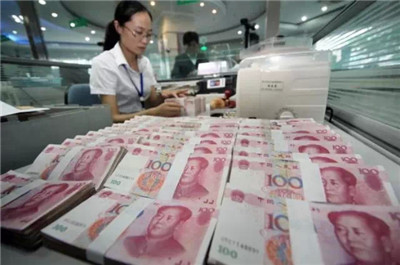(单词翻译:单击)
Loosening credit standards is an odd way to deflate a credit bubble. But China’s credit market is particularly scary because of its shadow banking system. A change that lets banks lend more could allow sunshine in.
用放松信贷标准来抑制信贷泡沫是一种怪异的做法。但中国的信贷市场因其影子银行体系而格外令人担忧。让银行增加放贷的政策转变可以让阳光照射进来。

Late on Wednesday, China’s State Council said that it plans to remove the upper limit on banks’ loan to deposit ratio (LDR). Current rules stop banks from lending once loans reach 75 per cent of the deposit base. Removal of this cap should mean more loans. But most estimates find that the system’s average LDR is between 66 and 72 per cent. So credit has not necessarily been constrained by this policy alone. Slowing economic activity has crimped demand; loan quotas and banks’ risk aversion have capped supply.
周三晚些时候,中国国务院宣布,计划取消银行贷存比上限。现行规定禁止银行在贷款达到存款基础的75%时继续放贷。取消这一上限应该会意味着放贷增加。但多数评估发现,中国银行业平均贷存比处于66%至72%之间。因此,信贷未必只受到这一规定的约束。经济活动放缓减少了贷款需求;贷款额度和银行的避险心理则限制了贷款供应。
The announcement is meaningful all the same. Analysts estimate that some banks’ LDRs — including BOCOM and China Merchants Bank do exceed the official limit. Competition for deposits at banks close to the limit lifts costs in an already tight market, compressing net interest margins (NIMs) — a trend exacerbated at quarter end when the banks report their ratios. Bernstein estimates that a 1 per cent increase in the LDR would have a beneficial impact on both NIMs and loan growth, adding between 80 and 120 basis points to 2016 earnings. Consensus estimates for 2016 growth at the top four banks by market capitalisation, which include Bank of China , ICBC and China Construction Bank, are between 5 and 6 per cent.
这一声明仍然具有意义。分析师估计,包括交通银行(BOCOM)和招商银行(CMB)在内,部分银行的贷存比确实超出了官方上限。在本就紧张的市场上,接近达到贷存比上限的银行为争取存款而展开的竞争会提升成本、压缩净息差(NIMs)——这种趋势每逢银行在季度末报告贷存比数据时都会加剧。伯恩斯坦(Bernstein)估计,贷存比上升1%就会对净息差和贷款增长产生有利影响,使2016年的利润提升80至120个基点。对于中国四家市值最高的银行——包括中国银行(BoC)、中国工商银行(ICBC)和中国建设银行(CCB)——来说,分析师预期它们在2016年的利润将增长5%至6%。
More interesting is the potential impact on consumers and small businesses. The banks prefer to make loans to state-owned entities. These are easier to securitise, removing them from the LDR measurement. More capacity allows more lending to smaller customers, which source loans expensively in the grey market.
更有意思的是该政策对消费者和小企业的潜在影响。银行倾向于贷款给国有企业。这些贷款更容易证券化,使它们不被纳入贷存比计算之中。银行放贷能力增强,可以向规模较小的客户发放更多贷款,后者通常在灰色市场以较高的成本借贷。


